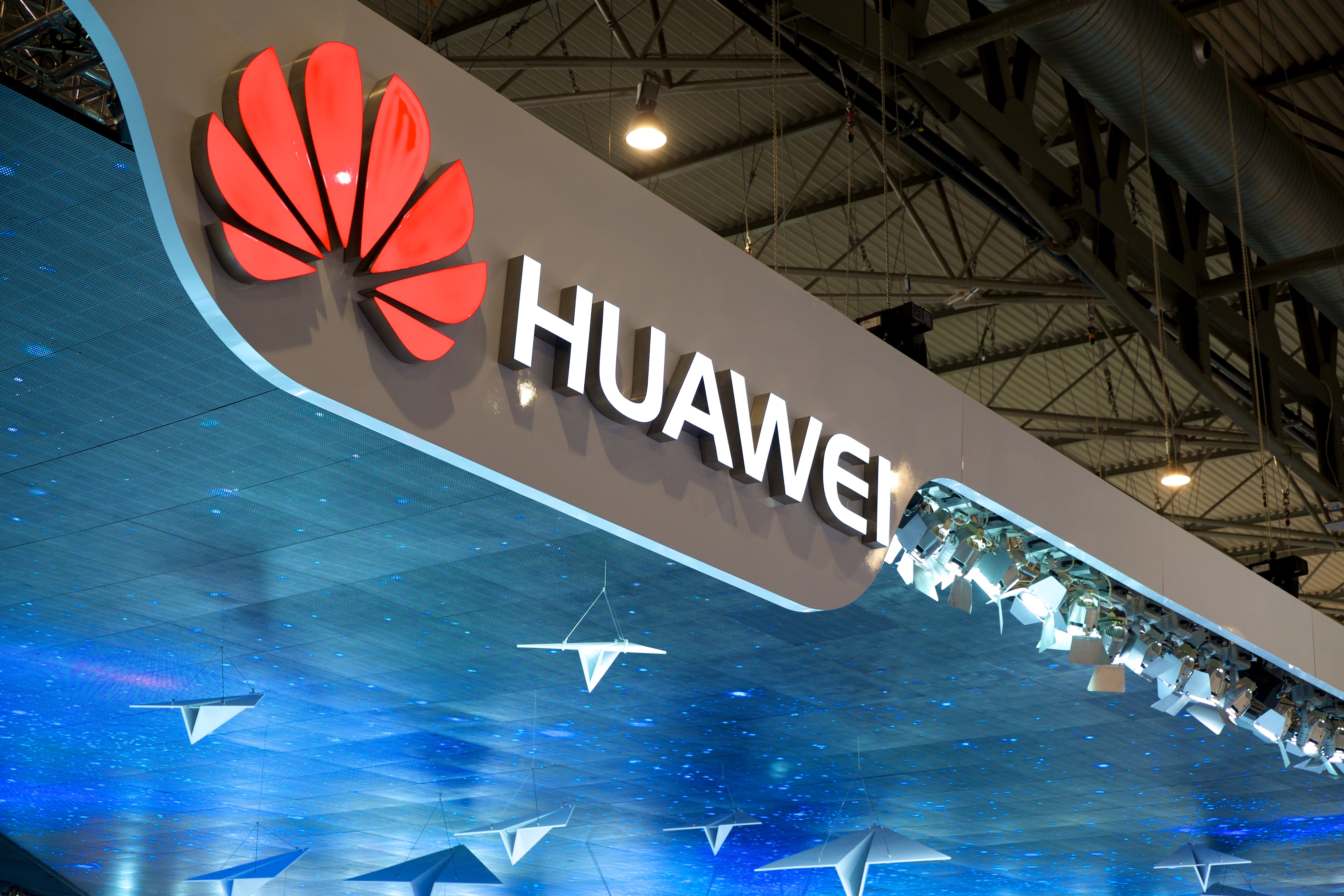U.S. Further Tightens Huawei Blacklist, Putting a “Blanket Ban” on the Company
Tik Tok sues the U.S. government, the U.S. tightens the Huawei semi-conductor blacklist and other news.

Published by The Lawfare Institute
in Cooperation With

On Aug. 17 the Commerce Department unexpectedly announced new restrictions on Huawei’s ability to buy semiconductor chips—electronic circuits that store computer data. These measures prohibit all firms from selling any chips made with U.S. technology to Huawei, regardless of whether the chips are tailored to Huawei’s user specifications. The changes also extend the sales ban to transactions in which Huawei is not the immediate purchaser but is the “end-user” or “ultimate consignee.” Analysts widely see these latest rules as, for the first time, imposing a “blanket ban” on semiconductor sales to the company. According to Commerce Secretary Wilbur Ross, the rule change is aimed at halting China’s “evasive measures” to bypass previous restrictions.
President Trump’s administration has imposed numerous restrictions on Huawei’s purchases of American technology, though until now, each has included significant loopholes. The United States first placed Huawei on a trade blacklist in May 2019; however, this ban was implemented only partially and did not affect most foreign-produced chips. This past May, Washington extended the ban to cover all semiconductors made both with U.S. technology and according to Huawei’s specifications. Under this rule, though, Huawei could still purchase chips with generic designs, sold off-the-shelf. It could also buy any chips sold through third-party distributors when the original seller did not know of the chips’ intended end use.
The latest Commerce Department rules, however, close both of these loopholes. And, because American technology is widespread in the global semiconductor industry, the new rules likely cover the vast majority of semiconductors made outside China.
The Trump administration’s clampdown could inflict serious harm on Huawei, perhaps even jeopardizing its role as a major global producer of 5G technology. Because Chinese producers’ semiconductor manufacturing capabilities currently lag those of foreign companies, some industry experts conclude that the new rules “put[] Huawei’s survival at risk.” One investment analyst writes that “[t]he company is probably finished” as a 5G producer “once its inventories run out early next year.” To be sure, previous Commerce Department restrictions have also hurt Huawei. Earlier this year, Huawei’s earnings growth fell below expectations partially due to the U.S. blacklist. And after last May’s restrictions, company officials expressed concern over Huawei’s “survival.” The effects of the August rule change, however, will likely be much greater.
Beyond Huawei, the Commerce Department rules could significantly impact other tech companies that sell to Huawei. Some American semiconductor companies have already condemned the changes, believing that the new rules will cut into their profits. The American Semiconductor Industry Association, for instance, released a statement describing the new rules as overly broad for national security purposes and harmful for U.S. companies. Certain foreign manufacturers also stand to lose—such as Taiwan’s MediaTek, which had earned large profits selling Huawei off-the-shelf semiconductors after last May’s regulation took effect. Some analysts argue, however, that U.S. chipmakers could benefit if Huawei’s market share gets absorbed by other smartphone producers that more regularly buy American products.
Commentators widely believe that the Commerce Department’s decision will deepen U.S.-China tensions—especially if Huawei’s business is truly jeopardized. The rule change has already prompted heated rhetoric from U.S. and Chinese officials. Vice President Mike Pence praised the Commerce Department’s rules, slamming Huawei as an “arm of the Chinese Communist Party’s surveillance state.” China, meanwhile, referred to the measures as “nothing short of bullying.” One Chinese spokesperson has stated that China, in response, will “take necessary measures” to protect the rights of Chinese companies but did not specify how China would retaliate.
TikTok Sues U.S. Government Over Trump Executive Order
On Aug. 24, TikTok filed a suit in federal court against the Trump administration, alleging that the president’s executive order to prohibit U.S. entities from engaging in transactions with TikTok—set to take effect in the next few weeks—was unconstitutional. The lawsuit comes even as U.S. companies have entered into talks with ByteDance, TikTok’s Beijing-based parent, to purchase the highly popular video-streaming app.
In their suit, filed in the U.S. District Court for the Central District of California, TikTok and ByteDance advance the following three claims, among others (For a more comprehensive explanation of the various claims TikTok advances in its suit, see this piece from Bobby Chesney.):
- The plaintiffs argue that President Trump violated TikTok’s Fifth Amendment due process rights, because his administration offered TikTok no notice or opportunity to be heard in advance of the action.
- The plaintiffs argue that the president abused his discretion under the International Emergency Economic Powers Act (IEEPA) by acting in his political interests, rather than seeking to address “an unusual and extraordinary threat,” as required by the statute. The suit alleges that, in response to U.S. government concerns about the company’s data collection practices, TikTok took “extraordinary measures to protect the privacy and security of TikTok’s U.S. user data,” including storing U.S. user data in the United States.
- The plaintiffs claim that the President demanded that TikTok make a payment to the U.S. Treasury as part of any deal to sell its business to a U.S. company, in violation of the company’s Fifth Amendment rights. The Fifth Amendment provides that private poverty may not “be taken for public use … without just compensation.”
A 2014 opinion from the D.C. Circuit Court of Appeals suggests that, under certain circumstances, companies required to divest on national security grounds have a right to be heard—as well as a right to access certain unclassified materials—before the president may issue an order against them. This precedent suggests that a judge may consider any evidence TikTok can marshal to support the claim that regulators did not give the company a chance to make its case. But even if TikTok persuades the court that its due process rights were violated, the president will likely be able to issue a similar executive order after complying with certain procedural safeguards.
TikTok is not likely to succeed in persuading a judge that the president abused his authority under IEEPA (claim 2). Experts have pointed out that courts are typically reluctant to challenge the president on judgments concerning national security. Even if TikTok can marshal evidence suggesting that it has taken measures to alleviate user concerns about data privacy, a judge is not likely to decide that the company’s precautions compel the president to change his judgment about whether the company poses a threat.
TikTok’s claim concerning “just compensation” (claim 3) may also face an uphill battle. Trump said publicly that, for any deal that TikTok enters to sell its assets to a U.S. buyer, “a very substantial portion” of the sale price would need to go to the U.S. Treasury. But Trump’s executive order requiring Bytedance to divest contains no such requirement, and it is not clear that Trump otherwise intends to force Bytedance to pay the U.S. Treasury as part of a sale.
Experts note that while the suit may not ultimately spare the company from divestiture requirements, it could help buy time. Because Trump’s Aug. 19 order gave the company just 90 days, a later deadline could help the company come to an agreement with potential buyers. The litigation also raises the prospect of delaying a final ruling on the validity of the divestiture order to a date beyond the end of Trump’s term in office, should he fail to win reelection. In other words, while the litigation faces an uphill battle on the merits, TikTok may be hoping the suit buys it time to get a better shake from a different president.
Other News
Reports emerged this month that the United States and Israel are nearing an agreement pursuant to which Israel would exclude equipment made by Huawei and ZTE from its 5G network. Such a deal, according to one anonymous official, could be signed “within weeks.” These reports, if true, could indicate that U.S. efforts to sway its allies not to buy from Huawei are continuing to gain traction. Already this July, the United Kingdom blocked Huawei products from its 5G infrastructure and ordered that existing Huawei components be replaced; France enacted a similar policy in July. Other European nations, such as Germany and Italy, are presently considering prohibitions against the company, though some German policymakers have recently expressed reluctance to ban Huawei products outright. Reporting on the U.S.-Israel agreement has already prompted a strong reaction from China. Chinese commentators have forcefully criticized Israel over the reported development, with one China Daily journalist referring to Israel as “a U.S. poodle against China in 5G.”
A subsidiary board of the Shenzhen Stock Exchange, ChiNext, adopted new rules this month that let tech companies register more quickly for initial public offerings (IPOs) on the exchange. With the new policies, tech companies can go public on the exchange without being examined by the China Securities Regulatory Commission. The change will significantly streamline the IPO process for participating Chinese companies. For many tech firms, IPO registration took years under the old system, but now companies can register through procedures similar to those in U.S. stock markets. Just after the new rules took effect, 18 companies listed via the fast-track procedures and on average experienced post-IPO price appreciations of 212 percent. Commentators have characterized the regulatory changes as one of China’s latest efforts to promote domestic tech champions and compete technologically with the United States. These reforms follow previous steps China took in April to fast-track IPOs on the Shenzhen exchange. And they coincide with a Trump administration effort to force Chinese companies that flout U.S. accounting standards to delist from American stock exchanges.
The Justice Department has arrested a former CIA operative accused of spying for China. The suspect, Alexander Yuk Ching Ma, allegedly sold information about CIA and FBI officials and tradecraft to Chinese intelligence officials, starting in 2001. The arrest follows the November 2019 conviction of former CIA operative Jerry Chun Shing Lee, who was similarly accused of selling state secrets to China. Between 2010 and 2012, Beijing dismantled the CIA’s spy network in China by killing or imprisoning more than a dozen U.S. informants. But analysts disagree over the extent to which intelligence provided by former CIA officials like Ma and Lee contributed to China’s success in identifying U.S. spies.
Commentary
In the New York Times, Tim Wu argues that a ban on TikTok serves as a fair means to correct an asymmetry whereby Chinese companies could access the U.S. market, even as American companies have been blocked in China. For Foreign Affairs, Jane Perlez says that Hong Kong’s national security law represents the end of the one country, two systems model under which China had guaranteed freedom and relative autonomy for the people of Hong Kong. In the Washington Post, John Pomfret writes that if Joe Biden wins the 2020 presidential election, he should build on elements of Trump’s China strategy—including standing up to China’s intellectual property theft—while restoring U.S. alliances to resist Beijing’s authoritarianism. The Economist writes that Hong Kong’s national security law has already pressured academics at the city’s foremost universities into self-censorship.
For the Atlantic Council, Hung Tran and Barbara Matthews assess the pros and cons of China’s new digital currency, which could facilitate more efficient transactions but may remove capital from banks’ balance sheets. The Financial Times editorial board argues that China’s approach to easing its economic downturn has benefited companies but done little for consumers. For Defense One, Steve Ferenzi and Keith Weber contend that the U.S. defense apparatus must undertake a major redesign to prepare for strategic competition with Russia or China. In the Providence Journal, J. William Mittendorf argues that China’s efforts to acquire property from the Canadian government north of the Arctic Circle presents strategic threats to Canada.
For Lawfare, Ashley Deeks unpacks the ways in which Chinese law firms are deploying “legal tech” with important implications for international law and U.S. foreign policy. Bobby Chesney unpacks the claims TikTok advances in its recent suit against the Trump administration. Sean Quirk explores the Trump administration’s recent statements and military exercises designed to counter China’s growing influence in the South China Sea. Mark J. Valencia argues that, should Vietnam file a complaint against China under the U.N. Convention on the Law of the Sea (UNCLOS), the risks may outweigh the benefits. On the Lawfare Podcast, Scott Anderson spoke to Robert Williams, Elsa Kania and Tarun Chhabra about the future of the U.S.-China relationship, as disputes over trade, technology, and the coronavirus spur harsh rhetoric in Beijing and Washington. Bobby Chesney spoke to Sheena Greitens and Ronald Deibert about Trump’s executive orders targeting TikTok and the role of technology competition in the broader space of U.S.-China competition.





.jpg?sfvrsn=e915b36f_5)
